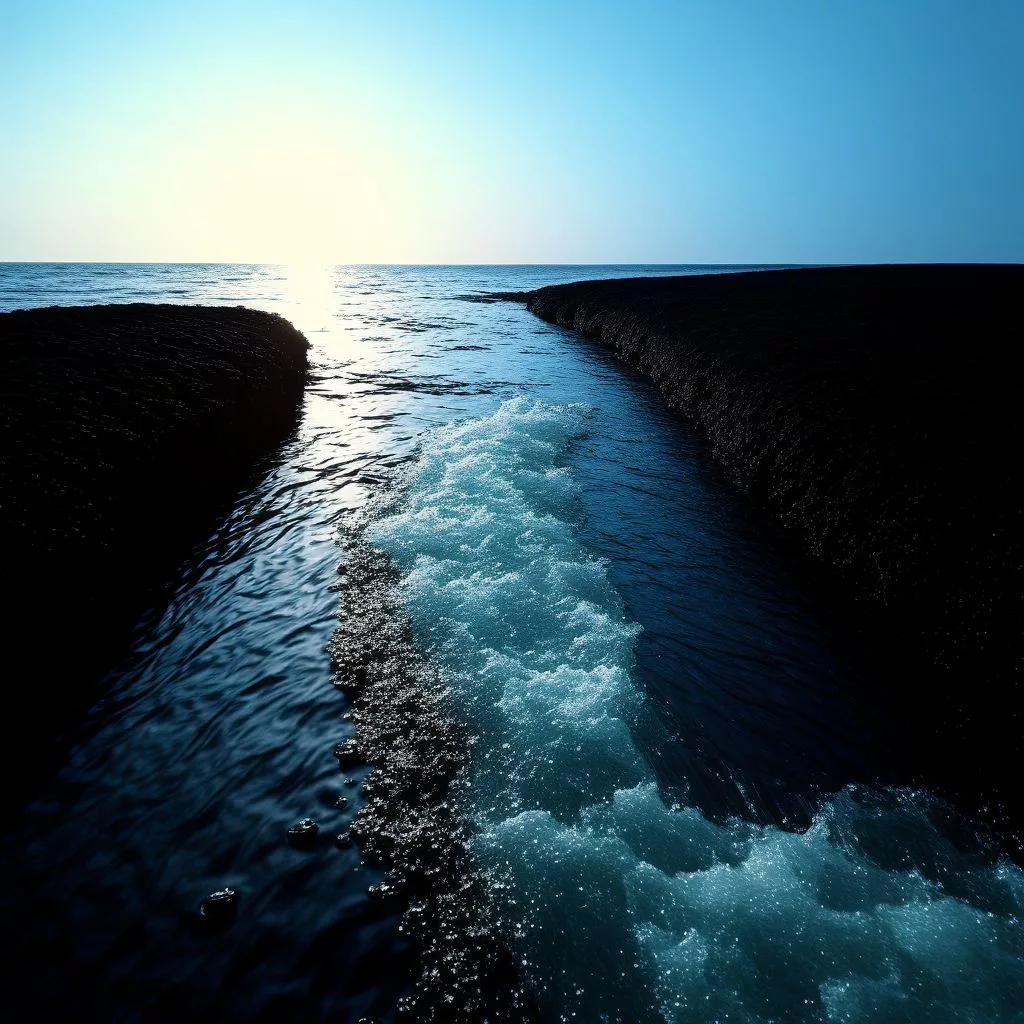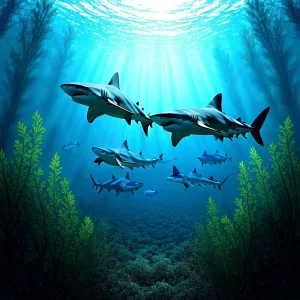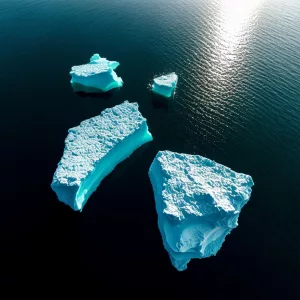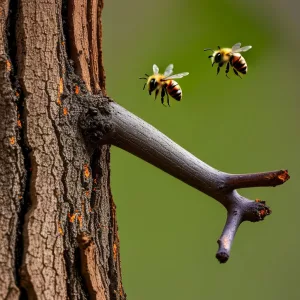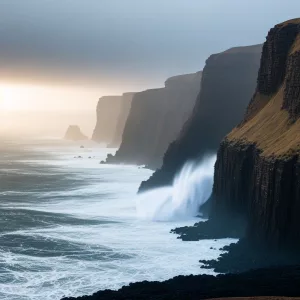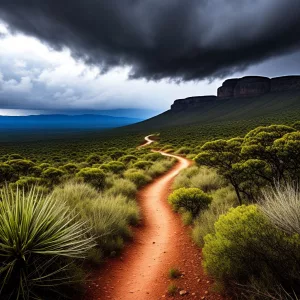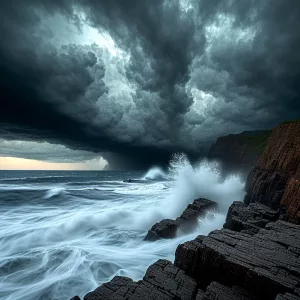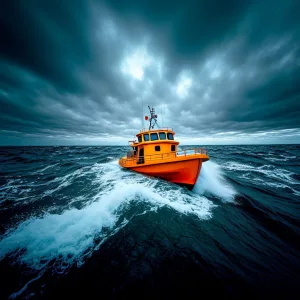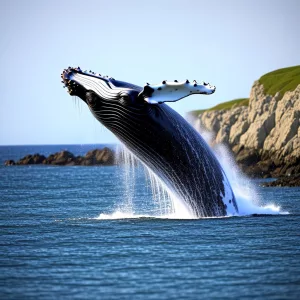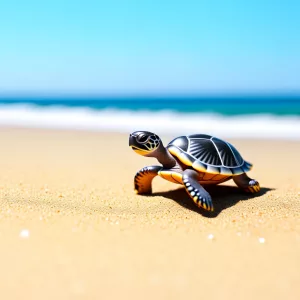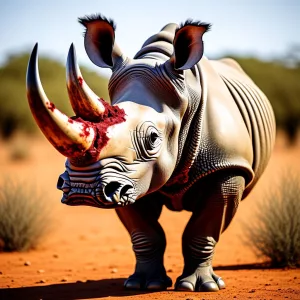Cape Town’s water is in big trouble. Rivers and oceans now carry lots of pollution from sewage and dirty stormwater, making people sick. Scientists who study this face pushback from politicians who hide or delay important information. But local communities and activists are fighting back, sharing realtime water updates and pushing for honest reports and better water systems. If Cape Town listens and acts, it can protect its waters and keep its people safe.
A new team made up of the Two Oceans Aquarium Foundation, Shark Spotters, SAIAB, and SANPARKS is using special underwater technology to track and protect sharks and rays in False Bay. By tagging these animals with tiny transmitters, researchers can follow their movements and learn more about their hidden lives. This exciting work not only helps keep marine life safe but also teaches the public and students about the importance of ocean conservation. Together, they are shining a light on the mysterious creatures beneath the waves and working to keep False Bay’s waters healthy for the future.
The Southern Ocean, once a steady guardian of Antarctica’s ice, is now changing in surprising ways. Instead of staying cold and fresh, its surface is growing saltier as warm, deep waters rise, melting sea ice and releasing ancient carbon into the air. This shift threatens Antarctic wildlife, like penguins and krill, and could speed up global warming while altering weather far beyond the South Pole. What seemed like a stable natural fortress is now a warning sign of a fragile climate, urging us to act before more damage unfolds.
Mackenzie Knott climbs some of South Africa’s highest mountains to help orphaned rhinos. These young rhinos, left without mothers because of poaching, need lots of special milk to survive. By taking on tough challenges like the 13 Peaks Challenge, Mackenzie raises money to buy milk and care for them. Her climbs turn fitness into a powerful way to protect these vulnerable animals and inspire others to join the fight. Every step she takes helps give rhino calves a chance to live and grow strong.
In 2017, fierce wildfires swept across South Africa’s Southern Cape, killing nearly 30 million Cape Honeybees and burning the wildflowers they rely on. Without flowers, many bees faced starvation, threatening the whole ecosystem that depends on their pollination. Communities came together, feeding the bees sugar syrup and rebuilding hives to help them survive. Slowly, with care and hope, the bees returned, bringing life back to the hills and reminding everyone how nature and people can heal after disaster.
South Africa’s coastline is a magical place where land and sea meet in wild, beautiful ways. From the rugged hiking trails of the Wild Coast to the peaceful village of Scarborough, each spot invites visitors to slow down and listen to nature’s ancient stories. At De Hoop, you can watch gentle whales play, while Noetzie’s fairytale stone castles and Cape Vidal’s lively wildlife add wonder to the shore. These soulful retreats offer quiet moments to reflect, feel alive, and connect deeply with the ocean’s timeless rhythm.
Jonkershoek’s Panorama Circuit is a wild, beautiful place where nature can turn fierce without warning. A young hiker learned this the hard way when a sudden storm trapped him in cold, dark mountains overnight. Thanks to brave search teams, he was found safe, teaching us that careful planning and respect for the mountain’s power are vital. Always bring extra supplies, share your plans, and never depend only on your phone. Adventure here is amazing—but only if you’re truly prepared.
Baboons living near Cape Town face many dangers like cars, dogs, traps, and loss of their homes because the city keeps growing. These risks make it hard for them to survive as they try to move through neighborhoods and wild areas. Rescue teams work hard to help injured baboons, but the problem is big and tiring. People in the community are starting to learn how to live better with baboons, hoping that kindness and care can help both humans and animals share the city’s edge safely.
The Cape is bracing for two strong winter storms bringing heavy rain, fierce winds up to 75 km/h, flooding, and even snow in the mountains. The wild weather will challenge roads, farms, and coastal communities, as people prepare to protect homes, livestock, and boats. Despite the danger, there’s a deep respect and shared spirit among locals who have weathered such storms for generations. These fierce cold fronts remind everyone of nature’s power and the strength of community in tough times.
CapeNature’s winter getaways in the Western Cape offer amazing 40% discounts from May to July, inviting you to explore cozy cabins, ecolodges, and campsites in stunning natural settings. Imagine sleeping under starfilled skies in the Karoo, hiking dramatic mountains in the Winelands, or watching colorful birds along the wild West Coast. Whether you love adventures like kloofing and ziplining or peaceful forest walks and beachside relaxation, these special winter escapes promise fresh air, breathtaking views, and warm moments with nature. It’s the perfect time to slow down, explore, and enjoy the magic of the Western Cape’s winter wonderland.
The National Sea Rescue Institute (NSRI) is a brave team that saves people in trouble along South Africa’s coast and wild places. When a father and son’s boat broke down at sea, the NSRI quickly arrived and brought them safely back to shore. At the same time, they helped a family in the forest whose teen got hurt, showing how teamwork and care stretch from ocean waves to rugged trails. These rescues remind us that the sea and nature can be beautiful but also dangerous, and being prepared is key. The NSRI’s work shines as a hopeful story of courage, community, and kindness along the wild coast.
In winter, the Western Cape turns into a magical land of misty valleys, snowy mountains, and playful whales near the shore. People cozy up with rich wines, explore wild nature in places like the Cederberg, and enjoy lively art and food in Cape Town and Hermanus. From snowy peaks to warm firesides, winter here is full of surprises, blending adventure, beauty, and the rich stories of the land. It’s a season that invites visitors to feel the magic of nature and culture in every corner.
South Africa is a land full of amazing mountains and lookouts that thrill adventurers and inspire dreamers. From God’s Window with its misty canyon views to Lion’s Head overlooking Cape Town’s sparkling cityscape, each summit offers a special kind of magic. Hiking up rugged trails or standing where ocean meets cliffs, visitors feel the wild beauty and history of the land. These peaks don’t just show stunning sights—they invite you to explore, reflect, and carry the memory of nature’s grand power forever.
Kai is a tiny loggerhead sea turtle who faced many dangers from the moment he hatched on South Africa’s coast. Weak and sick from cold seas, he was rescued and brought to the Turtle Conservation Centre, where experts used special care and exercises to help him heal. With the support of science and the community, Kai grew stronger and now lives safely in an aquarium until he’s ready to return to the wild. His story shows how hope, teamwork, and kindness can give sea turtles a second chance to survive.
The Timeless Language of Flowers: Celebrating Mother’s Day with Cape Town’s Finest Florists
Cape Town’s florists make Mother’s Day extra special by creating beautiful, fresh bouquets full of meaning and care. Each flower is chosen with love, telling a unique story to celebrate moms in a heartfelt way. From elegant shops to friendly local stalls, these florists mix art, tradition, and nature’s beauty to brighten the day. Their colorful arrangements are more than gifts—they are warm hugs made of petals, carrying love and gratitude from Cape Town straight to every mother’s heart.
The Wildlife Forensic Academy in South Africa is a unique school where rangers and conservationists learn how to solve wildlife crimes using science and careful detective work. Instead of classrooms, students train outdoors in the wild, practicing on realistic animal crime scenes like a poached rhino or poisoned giraffe. Their handson lessons help protect all kinds of animals, big and small, by gathering strong evidence to catch poachers and wildlife traffickers. This academy is changing how Africa and the world fight wildlife crime, turning passion into powerful action.

